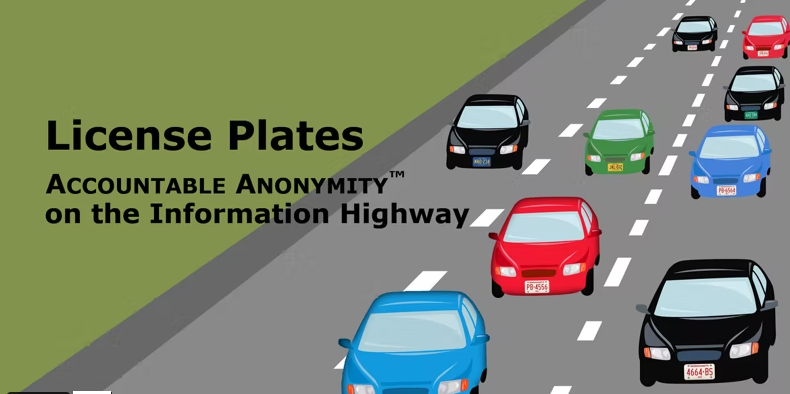Accountable Anonymity: What is It and Why is It The Future?

Anonymity has become desirable to most internet users and it’s not difficult to see why. Federal governments and silicon valley corporations have been indiscriminately eroding user privacy to serve their selfish interest.
Everyone wants privacy and anonymity for themselves. Similarly, everyone wants accountability from others they encounter online.
On the surface, anonymity directly conflicts with accountability. However, there’s a way for anonymity and accountability to co-exist online. Accountable Anonymity is possible.
Why has the co-existence of anonymity and accountability always seemed impossible?
It all boils down to how we’ve been using the internet over the last two decades. Think of the internet as a physical universe and compare our digital lives with our physical lives.
Anonymity and accountability have easily co-existed in our physical lives through simple principles. In our physical world, there are outdoors and indoors.
For the most part, the outdoors consist of public roadways and highways and indoors consists of buildings. The sole purpose of roadways and highways is to transport us from one building to the next. Indoors (Buildings) are where we do all our important stuff and store all our valuables. Buildings are actually accountability spaces.
Accountable anonymity in our digital world can be easily realized if we borrow the same simple principles that have made it possible in the physical world.
Think about it. How comfortable would you be doing your banking by the side of the highway? Would you let your kids hang out or play by the side of the road? That’s exactly what we’ve been doing online. We carry out our important business and store our valuable information on the web. The web is the digital equivalent of the public roadways and highways in our physical world.
The License Plate Model
The license plate model used in our physical world is a perfect example of how simple principles used in our physical world can be used to bring accountable anonymity to our digital spaces.
Henry Lee Higginson invented the license plate model in 1903 after he got concerned about horse carriages speeding across his summer home with no accountability on the part of their drivers. His license plate invention ensured that there was a way to hold drivers accountable without disclosing their identity. That is accountable anonymity.
While on the road, no one gets to know your identity unless an incident occurs that causes a need to know. The license plate of the car whose driver is at fault can be used to reveal their identity and hold them accountable.
If the same methods were to be implemented in our digital world, identities would remain anonymous unless a need to know invokes a court order to disclose the person behind a digital identity.
The license plate model suffers one obvious flaw in our physical world. One can masquerade as a police officer, get someone's car license plate number, and get the motor vehicle registration agency to disclose their identity. In the digital world, we can overcome that vulnerability by eliminating centralized databases of identity information.
Currently, there’s a lot of buzz around decentralized identity (DID). Most internet users have realized how much of a bad idea centralized identity information databases have always been.
Your digital identity credential (License plate number) can not reveal any of your personally identifying information. It is simply a claim that you are a real person with a real identity. Your identity credential is connected to a foundational certificate that holds your identity information. That foundational certificate is your property and remains in your possession. It can not be accessed without your approval.
Your identity credential and foundational certificate are created after attestation to your identity claims. Once created, you get to own and store your foundational certificate. You can then create multiple utility identity certificates and have different personas depending on who you want to interact with.
Who attests to identity claims? Attestation calls for some form of governance. Governance, not Government!
Can Decentralization and Governance Co-Exist?
Decentralization enthusiasts strongly believe that decentralization and governance are mutually exclusive. That’s because they think of governance as government.
Lawrence Lundy Bryan, a decentralization advocate once stated:
“There’s no such thing as decentralized governance.”
In other words, regardless of how much we fantasize about total autonomy, we must appreciate that decentralization by itself is not enough. It lacks governance. It can provide anonymity but without governance, there can be no accountability.
Take the bitcoin blockchain for instance. It has enabled internet users across the world to transact anonymously and with full autonomy. No banks and governments control bitcoin transactions. That’s wonderful!
On the other hand, that anonymity has allowed all sorts of criminals to thrive and continue their malicious activities. Drug dealers, money launderers, terrorists, human traffickers, and all manner of evil persons have found a haven in bitcoin. There’s privacy and anonymity, thanks to decentralization, but no accountability whatsoever.
Decentralized governance does not exist but decentralization plus governance can certainly work.
As mentioned earlier, governance does not mean the existence of a government. A governance body whose authority is exercised by its participants is essential. There must be a Duly Appointed Public Authority (DCPA). Think of a body such as the City Hall. It does not have any authority to exercise other than that of members of that city. Any member can participate in decision-making.
One such DCPA is the City of Osmio. Check out https://www.osmio.ch/
The City of Osmio’s VRD (Vital Records Department) ensures that identity claims are attested to by real human beings before the identity credential and foundation certificate are issued. Osmio VRD does not keep or store any identity information.
The City of Osmio has its headquarters in Geneva. The headquarters consist of a small office where it was chartered. Other than that, it has no physical facilities anywhere else in the world. It is staffed by real people from various parts of the world who handle the business of its departments and commissions. It has no affiliation with any political entity.
Attestations can be of different levels. Sensitive use cases require high levels of attestation to identity claims. Attestation officers are well-trained professionals who can establish the trustworthiness of identity claims made.
In summary, these are the three parts that make accountable anonymity in our digital world possible.
- Identity credentials that do not reveal any personally identifying information, but are connected to a foundational certificate owned by the user.
- Governance by a DCPA that exercises participatory authority and does not store anyone’s identity information.
- Attestation officers, who on behalf of all the members of the City of Osmio, attest to the identity claims made.
